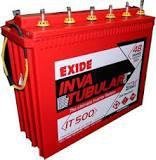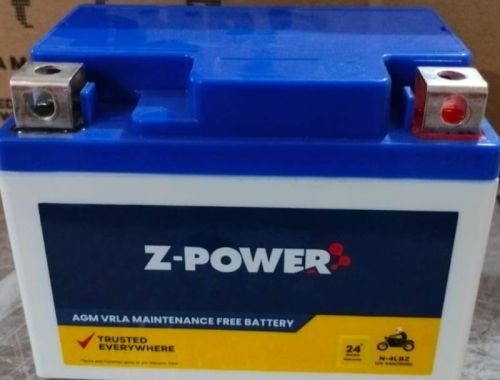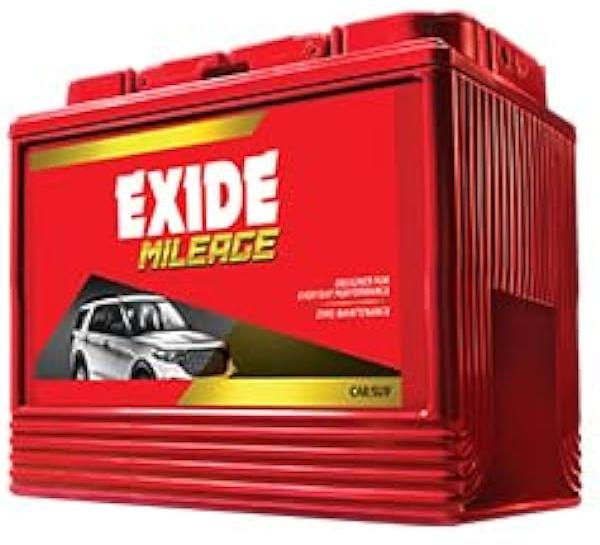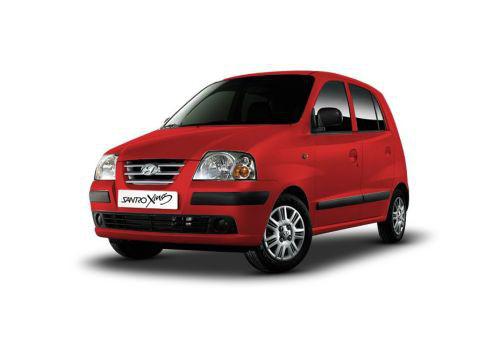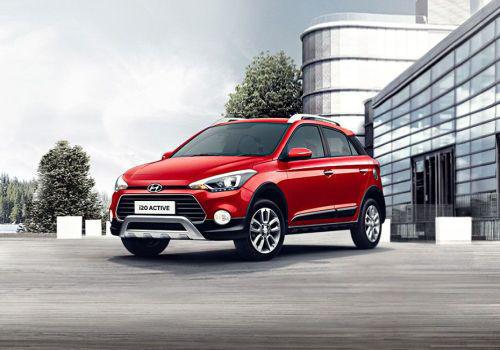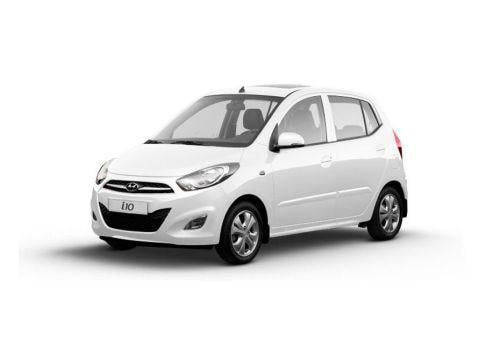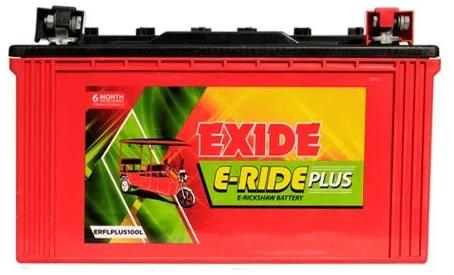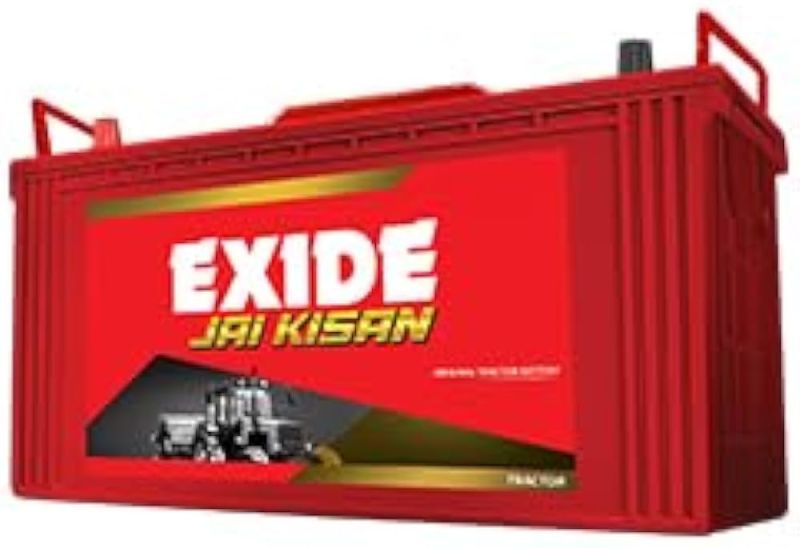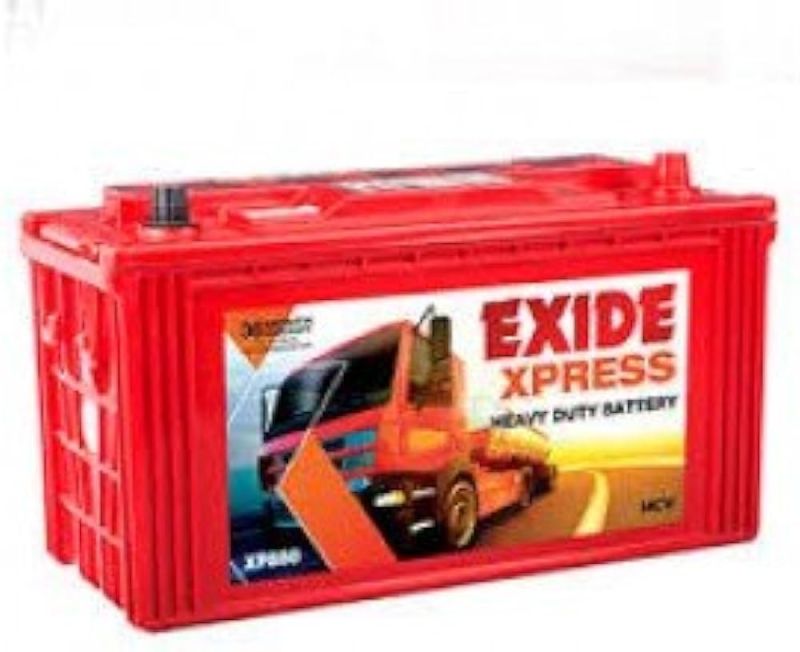Jaipur, Rajasthan
- GST NO. : 08ABDPM5660L1ZB
Automotive Batteries
Leading Exporters, Wholesaler, Trader, Retailer of Automotive Bus Battery, Bike Battery, Car Batteries, Electric Rickshaw Battery, Tractor Battery and Truck Battery from Jaipur.
| Business Type | Exporter, Supplier, Trader |
| Color | Red |
| Application | Four Wheelers |
| Certification | CE Certfied |
| Feature | Stable Performance, Fast Chargeable |
| Weight | 15-20 Kg |
| Function | Electric |
Preferred Buyer From
| Location | India ( Rajasthan only) & All other countries |
Automotive batteries are essential components in various vehicles, each designed to meet specific power requirements and operational needs. In the automotive realm, batteries serve diverse applications:
In the case of cars, batteries play a pivotal role in supplying power for engine ignition and various electronic components. Typically lead-acid, these batteries vary in size to accommodate different car models. Some modern cars may use advanced technologies like Absorbent Glass Mat (AGM) or Enhanced Flooded Batteries (EFB) for enhanced performance.
Buses and trucks demand heavier-duty batteries due to larger engines and additional electrical loads. These heavy-duty batteries ensure reliable starting and power supply for the various systems in commercial vehicles.
Motorcycle batteries, smaller and lighter, must still deliver sufficient power for engine starting and running lights and accessories. Typically lead-acid, some motorcycles may employ lithium-ion batteries for a more compact and lighter design.
Electric rickshaws (E-Rickshaws) are part of the growing trend towards electric transportation. Powered by electric batteries, these vehicles commonly use lead-acid or lithium-ion batteries, providing a clean and efficient mode of urban commuting.
Key Considerations for Automotive Batteries:
-
Voltage and Capacity: Different vehicles require batteries with specific voltage and capacity ratings to meet their power needs.
-
Maintenance: While traditional lead-acid batteries may require periodic maintenance, newer technologies like AGM and lithium-ion offer maintenance-free options.
-
Durability: Automotive batteries need to withstand vibrations, temperature fluctuations, and other harsh conditions associated with vehicle operation.
-
Technology: Advancements in battery technology, such as AGM and lithium-ion, provide improved performance, longer life, and faster charging capabilities.
-
Environmental Impact: With increasing awareness of environmental concerns, there is a growing interest in electric vehicles powered by batteries with reduced environmental impact.
-
Choosing the right automotive battery involves considering the vehicle type, power requirements, and specific environmental conditions to ensure reliable and efficient performance.
BATTERY SAFETY AND HANDLING GUIDELINES
FOLLOW THESE BEST PRACTICES TO AVOID BATTERY ACCIDENTS
Please refer to your vehicle and battery owners’ manual to safely handle your lead-acid battery. Lead-acid batteries contain hydrogen-oxygen gases that can be explosive. Also, leakage of sulfuric acid can cause severe burns. Here are some precautions:
- Wear safety glasses or goggles and a face shield
- Make sure the work area is well-ventilated
- Keep the battery out of children’s reach
- Keep vent caps tight and level
- In the event of an accident, flush with water and call a physician immediately
- Never lean over the battery while boosting, testing or charging it
- Keep all ignition sources like cigarettes, flames, and sparks that could cause the battery to explode away from it
- Do not charge, use booster cables or adjust post connections without proper instructions and training
- Avoid metallic contact across the terminals as this can result in short circuit and sparking (remove comma)
Safe disposal of old batteries
Govt. of India has notified Batteries Management Handling Rules, 2001 under the Environment Protection (Amendment) Act 1986 to channelize used lead acid batteries to registered/ authorized recyclers and ensure an environmentally safe & sound recycling.
The used batteries are carefully transported to respective manufacturers for the safe lead-recycle process, with no danger of air/water pollution. We are strongly committed to a safe and pollution-free environment.
| Business Type | Exporter, Supplier, Retailer, Trader, Distributor |
| Warranty | 2years |
| Function | Electric |
| Weight | 1.5 Kg |
| Type | Two Wheeler Battery |
| Feature | Stable Performance, Non Breakable, Long Life, Heat Resistance, Fast Chargeable, Auto Cut |
| Application | Automobile Industry |
| Color | Blue |
| Brand Name | Z-Power |
| For Two Wheelers | Hero Bikes |
| Packaging Details | Pack of 10 Batteries of 4LB Two Wheeler batteries |
Preferred Buyer From
| Location | India ( Rajasthan only) & All other countries |
Z-Power Motorcycle Batteries, engineered to deliver exceptional cranking power in even the most challenging environmental conditions, meeting stringent motorcycle standards with ease. Our batteries boast a Sealed Maintenance-Free design, eliminating the need for water top-ups throughout their service life. The AGM separator and advanced sealing mechanism ensure leak-proof operations, safeguarding surrounding vehicle components. Additionally, the VRLA design facilitates proper vaporization of gassing.
| Business Type | Exporter, Supplier, Trader |
| Brand Name | Exide |
| Driven Type | Electric |
| Certification | CE Certfied |
| Feature | Stable Performance, Auto Cut |
| Warranty | 2yrs |
| Battery Material | Lead Acid |
| Frequency | 45- 55 Hz |
Preferred Buyer From
| Location | India ( Rajasthan only) & All other countries |
Automotive batteries are essential components in various vehicles, each designed to meet specific power requirements and operational needs. In the automotive realm, batteries serve diverse applications:
In the case of cars, batteries play a pivotal role in supplying power for engine ignition and various electronic components. Typically lead-acid, these batteries vary in size to accommodate different car models. Some modern cars may use advanced technologies like Absorbent Glass Mat (AGM) or Enhanced Flooded Batteries (EFB) for enhanced performance.
Buses and trucks demand heavier-duty batteries due to larger engines and additional electrical loads. These heavy-duty batteries ensure reliable starting and power supply for the various systems in commercial vehicles.
Motorcycle batteries, smaller and lighter, must still deliver sufficient power for engine starting and running lights and accessories. Typically lead-acid, some motorcycles may employ lithium-ion batteries for a more compact and lighter design.
Electric rickshaws (E-Rickshaws) are part of the growing trend towards electric transportation. Powered by electric batteries, these vehicles commonly use lead-acid or lithium-ion batteries, providing a clean and efficient mode of urban commuting.
Key Considerations for Automotive Batteries:
-
Voltage and Capacity: Different vehicles require batteries with specific voltage and capacity ratings to meet their power needs.
-
Maintenance: While traditional lead-acid batteries may require periodic maintenance, newer technologies like AGM and lithium-ion offer maintenance-free options.
-
Durability: Automotive batteries need to withstand vibrations, temperature fluctuations, and other harsh conditions associated with vehicle operation.
-
Technology: Advancements in battery technology, such as AGM and lithium-ion, provide improved performance, longer life, and faster charging capabilities.
-
Environmental Impact: With increasing awareness of environmental concerns, there is a growing interest in electric vehicles powered by batteries with reduced environmental impact.
-
Choosing the right automotive battery involves considering the vehicle type, power requirements, and specific environmental conditions to ensure reliable and efficient performance.
FOLLOW THESE BEST PRACTICES TO AVOID BATTERY ACCIDENTS
Please refer to your vehicle and battery owners’ manual to safely handle your lead-acid battery. Lead-acid batteries contain hydrogen-oxygen gases that can be explosive. Also, leakage of sulfuric acid can cause severe burns. Here are some precautions:
- Wear safety glasses or goggles and a face shield
- Make sure the work area is well-ventilated
- Keep the battery out of children’s reach
- Keep vent caps tight and level
- In the event of an accident, flush with water and call a physician immediately
- Never lean over the battery while boosting, testing or charging it
- Keep all ignition sources like cigarettes, flames, and sparks that could cause the battery to explode away from it
- Do not charge, use booster cables or adjust post connections without proper instructions and training
- Avoid metallic contact across the terminals as this can result in short circuit and sparking (remove comma)
Safe disposal of old batteries
Govt. of India has notified Batteries Management Handling Rules, 2001 under the Environment Protection (Amendment) Act 1986 to channelize used lead acid batteries to registered/ authorized recyclers and ensure an environmentally safe & sound recycling.
The used batteries are carefully transported to respective manufacturers for the safe lead-recycle process, with no danger of air/water pollution. We are strongly committed to a safe and pollution-free environment.
| Business Type | Exporter, Supplier, Trader |
| Brand Name | Eastman |
| Application | Vehicle Use |
| Load Capacity | 500W |
| Type | Electric Rickshaw Battery |
| Function | Electric |
| Country of Origin | India |
| Product Code | EM120ER |
Preferred Buyer From
| Location | India ( Rajasthan only) & All other countries |
Automotive batteries are essential components in various vehicles, each designed to meet specific power requirements and operational needs. In the automotive realm, batteries serve diverse applications:
In the case of cars, batteries play a pivotal role in supplying power for engine ignition and various electronic components. Typically lead-acid, these batteries vary in size to accommodate different car models. Some modern cars may use advanced technologies like Absorbent Glass Mat (AGM) or Enhanced Flooded Batteries (EFB) for enhanced performance.
Buses and trucks demand heavier-duty batteries due to larger engines and additional electrical loads. These heavy-duty batteries ensure reliable starting and power supply for the various systems in commercial vehicles.
Motorcycle batteries, smaller and lighter, must still deliver sufficient power for engine starting and running lights and accessories. Typically lead-acid, some motorcycles may employ lithium-ion batteries for a more compact and lighter design.
Electric rickshaws (E-Rickshaws) are part of the growing trend towards electric transportation. Powered by electric batteries, these vehicles commonly use lead-acid or lithium-ion batteries, providing a clean and efficient mode of urban commuting.
Key Considerations for Automotive Batteries:
-
Voltage and Capacity: Different vehicles require batteries with specific voltage and capacity ratings to meet their power needs.
-
Maintenance: While traditional lead-acid batteries may require periodic maintenance, newer technologies like AGM and lithium-ion offer maintenance-free options.
-
Durability: Automotive batteries need to withstand vibrations, temperature fluctuations, and other harsh conditions associated with vehicle operation.
-
Technology: Advancements in battery technology, such as AGM and lithium-ion, provide improved performance, longer life, and faster charging capabilities.
-
Environmental Impact: With increasing awareness of environmental concerns, there is a growing interest in electric vehicles powered by batteries with reduced environmental impact.
-
Choosing the right automotive battery involves considering the vehicle type, power requirements, and specific environmental conditions to ensure reliable and efficient performance.
BATTERY SAFETY AND HANDLING GUIDELINES
FOLLOW THESE BEST PRACTICES TO AVOID BATTERY ACCIDENTS
Please refer to your vehicle and battery owners’ manual to safely handle your lead-acid battery. Lead-acid batteries contain hydrogen-oxygen gases that can be explosive. Also, leakage of sulfuric acid can cause severe burns. Here are some precautions:
- Wear safety glasses or goggles and a face shield
- Make sure the work area is well-ventilated
- Keep the battery out of children’s reach
- Keep vent caps tight and level
- In the event of an accident, flush with water and call a physician immediately
- Never lean over the battery while boosting, testing or charging it
- Keep all ignition sources like cigarettes, flames, and sparks that could cause the battery to explode away from it
- Do not charge, use booster cables or adjust post connections without proper instructions and training
- Avoid metallic contact across the terminals as this can result in short circuit and sparking (remove comma)
Safe disposal of old batteries
Govt. of India has notified Batteries Management Handling Rules, 2001 under the Environment Protection (Amendment) Act 1986 to channelize used lead acid batteries to registered/ authorized recyclers and ensure an environmentally safe & sound recycling.
The used batteries are carefully transported to respective manufacturers for the safe lead-recycle process, with no danger of air/water pollution. We are strongly committed to a safe and pollution-free environment.
| Business Type | Exporter, Supplier, Trader |
| Brand Name | Exide |
| Application | commercial vehicle |
| Function | Electric |
| Country of Origin | India |
| Feature | Long Life,Stable Performance |
| Type | Vehicle Battery |
| Sealed Type | Heat Sealed |
Preferred Buyer From
| Location | India ( Rajasthan only) & All other countries |
Automotive batteries are essential components in various vehicles, each designed to meet specific power requirements and operational needs. In the automotive realm, batteries serve diverse applications:
In the case of cars, batteries play a pivotal role in supplying power for engine ignition and various electronic components. Typically lead-acid, these batteries vary in size to accommodate different car models. Some modern cars may use advanced technologies like Absorbent Glass Mat (AGM) or Enhanced Flooded Batteries (EFB) for enhanced performance.
Buses and trucks demand heavier-duty batteries due to larger engines and additional electrical loads. These heavy-duty batteries ensure reliable starting and power supply for the various systems in commercial vehicles.
Motorcycle batteries, smaller and lighter, must still deliver sufficient power for engine starting and running lights and accessories. Typically lead-acid, some motorcycles may employ lithium-ion batteries for a more compact and lighter design.
Electric rickshaws (E-Rickshaws) are part of the growing trend towards electric transportation. Powered by electric batteries, these vehicles commonly use lead-acid or lithium-ion batteries, providing a clean and efficient mode of urban commuting.
Key Considerations for Automotive Batteries:
-
Voltage and Capacity: Different vehicles require batteries with specific voltage and capacity ratings to meet their power needs.
-
Maintenance: While traditional lead-acid batteries may require periodic maintenance, newer technologies like AGM and lithium-ion offer maintenance-free options.
-
Durability: Automotive batteries need to withstand vibrations, temperature fluctuations, and other harsh conditions associated with vehicle operation.
-
Technology: Advancements in battery technology, such as AGM and lithium-ion, provide improved performance, longer life, and faster charging capabilities.
-
Environmental Impact: With increasing awareness of environmental concerns, there is a growing interest in electric vehicles powered by batteries with reduced environmental impact.
-
Choosing the right automotive battery involves considering the vehicle type, power requirements, and specific environmental conditions to ensure reliable and efficient performance.
BATTERY SAFETY AND HANDLING GUIDELINES
FOLLOW THESE BEST PRACTICES TO AVOID BATTERY ACCIDENTS
Please refer to your vehicle and battery owners’ manual to safely handle your lead-acid battery. Lead-acid batteries contain hydrogen-oxygen gases that can be explosive. Also, leakage of sulfuric acid can cause severe burns. Here are some precautions:
- Wear safety glasses or goggles and a face shield
- Make sure the work area is well-ventilated
- Keep the battery out of children’s reach
- Keep vent caps tight and level
- In the event of an accident, flush with water and call a physician immediately
- Never lean over the battery while boosting, testing or charging it
- Keep all ignition sources like cigarettes, flames, and sparks that could cause the battery to explode away from it
- Do not charge, use booster cables or adjust post connections without proper instructions and training
- Avoid metallic contact across the terminals as this can result in short circuit and sparking (remove comma)
Safe disposal of old batteries
Govt. of India has notified Batteries Management Handling Rules, 2001 under the Environment Protection (Amendment) Act 1986 to channelize used lead acid batteries to registered/ authorized recyclers and ensure an environmentally safe & sound recycling.
The used batteries are carefully transported to respective manufacturers for the safe lead-recycle process, with no danger of air/water pollution. We are strongly committed to a safe and pollution-free environment.
For any enquiry, please contact
E-mail: info.babaenterprisesindia@gmail.com
Mobile 91-9461156294 (Call, SMS & Whatsapp)
| Business Type | Exporter, Supplier, Trader |
| Brand Name | Exide |
| Driven Type | Battery |
| Application | Automotive |
| Type | Truck Battery |
| Country of Origin | India |
| Capacity | 100 Ah |
| Pack Type | Carton Box |
Preferred Buyer From
| Location | India ( Rajasthan only) & All other countries |
Automotive batteries are essential components in various vehicles, each designed to meet specific power requirements and operational needs. In the automotive realm, batteries serve diverse applications:
In the case of cars, batteries play a pivotal role in supplying power for engine ignition and various electronic components. Typically lead-acid, these batteries vary in size to accommodate different car models. Some modern cars may use advanced technologies like Absorbent Glass Mat (AGM) or Enhanced Flooded Batteries (EFB) for enhanced performance.
Buses and trucks demand heavier-duty batteries due to larger engines and additional electrical loads. These heavy-duty batteries ensure reliable starting and power supply for the various systems in commercial vehicles.
Motorcycle batteries, smaller and lighter, must still deliver sufficient power for engine starting and running lights and accessories. Typically lead-acid, some motorcycles may employ lithium-ion batteries for a more compact and lighter design.
Electric rickshaws (E-Rickshaws) are part of the growing trend towards electric transportation. Powered by electric batteries, these vehicles commonly use lead-acid or lithium-ion batteries, providing a clean and efficient mode of urban commuting.
Key Considerations for Automotive Batteries:
-
Voltage and Capacity: Different vehicles require batteries with specific voltage and capacity ratings to meet their power needs.
-
Maintenance: While traditional lead-acid batteries may require periodic maintenance, newer technologies like AGM and lithium-ion offer maintenance-free options.
-
Durability: Automotive batteries need to withstand vibrations, temperature fluctuations, and other harsh conditions associated with vehicle operation.
-
Technology: Advancements in battery technology, such as AGM and lithium-ion, provide improved performance, longer life, and faster charging capabilities.
-
Environmental Impact: With increasing awareness of environmental concerns, there is a growing interest in electric vehicles powered by batteries with reduced environmental impact.
-
Choosing the right automotive battery involves considering the vehicle type, power requirements, and specific environmental conditions to ensure reliable and efficient performance.
BATTERY SAFETY AND HANDLING GUIDELINES
FOLLOW THESE BEST PRACTICES TO AVOID BATTERY ACCIDENTS
Please refer to your vehicle and battery owners’ manual to safely handle your lead-acid battery. Lead-acid batteries contain hydrogen-oxygen gases that can be explosive. Also, leakage of sulfuric acid can cause severe burns. Here are some precautions:
- Wear safety glasses or goggles and a face shield
- Make sure the work area is well-ventilated
- Keep the battery out of children’s reach
- Keep vent caps tight and level
- In the event of an accident, flush with water and call a physician immediately
- Never lean over the battery while boosting, testing or charging it
- Keep all ignition sources like cigarettes, flames, and sparks that could cause the battery to explode away from it
- Do not charge, use booster cables or adjust post connections without proper instructions and training
- Avoid metallic contact across the terminals as this can result in short circuit and sparking (remove comma)
Safe disposal of old batteries
Govt. of India has notified Batteries Management Handling Rules, 2001 under the Environment Protection (Amendment) Act 1986 to channelize used lead acid batteries to registered/ authorized recyclers and ensure an environmentally safe & sound recycling.
The used batteries are carefully transported to respective manufacturers for the safe lead-recycle process, with no danger of air/water pollution. We are strongly committed to a safe and pollution-free environment.

